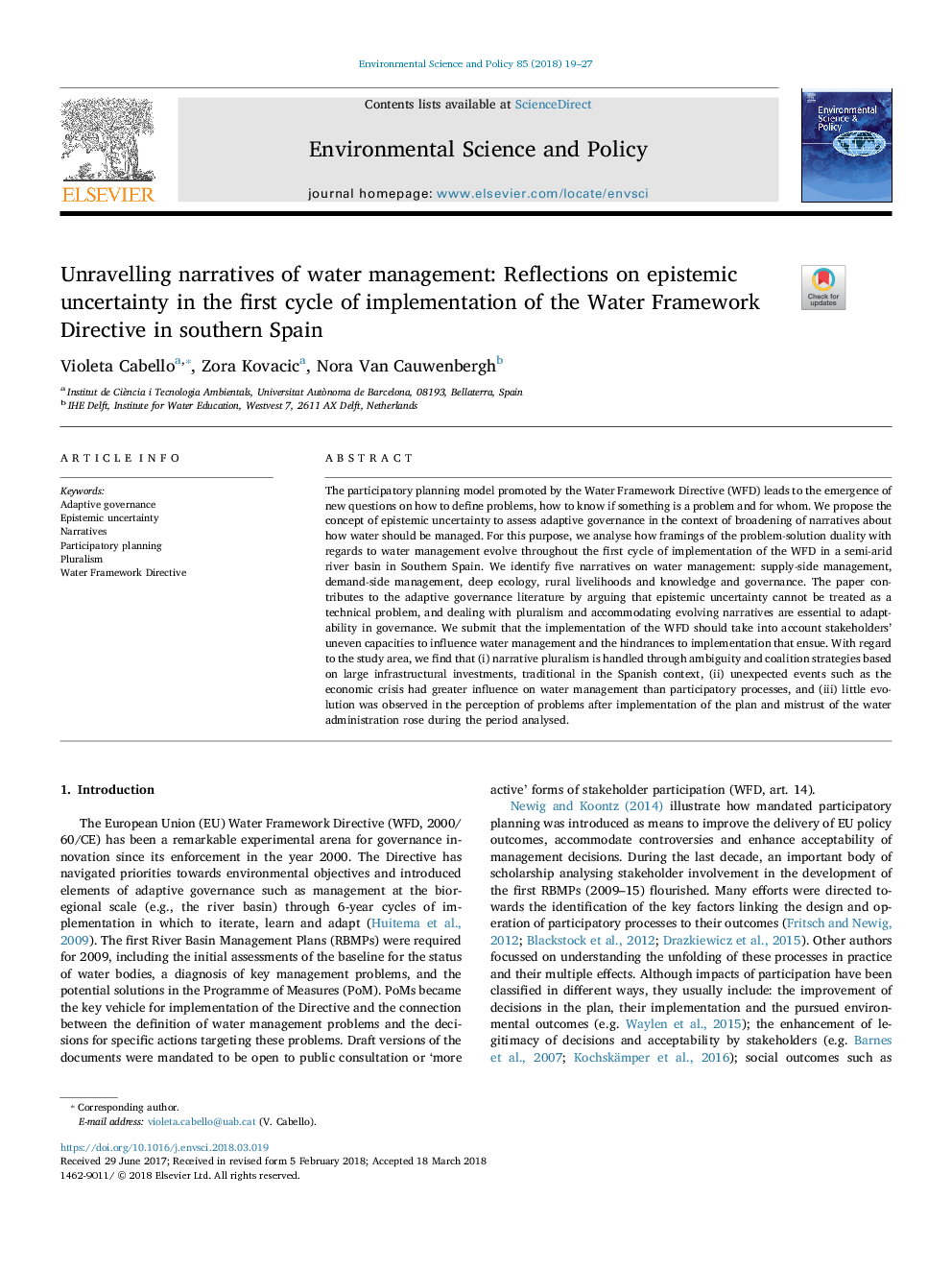ترجمه فارسی عنوان مقاله
تفکیک روایات مدیریت آب: بازتاب در عدم قطعیت معرفتی در اولین چرخه اجرای دستورالعمل چارچوب آب در جنوب اسپانیا
عنوان انگلیسی
Unravelling narratives of water management: Reflections on epistemic uncertainty in the first cycle of implementation of the Water Framework Directive in southern Spain
| کد مقاله | سال انتشار | تعداد صفحات مقاله انگلیسی |
|---|---|---|
| 93980 | 2018 | 9 صفحه PDF |
منبع

Publisher : Elsevier - Science Direct (الزویر - ساینس دایرکت)
Journal : Environmental Science & Policy, Volume 85, July 2018, Pages 19-27
ترجمه کلمات کلیدی
حکومت اقتدارگرا، عدم اطمینان معرفتی، روایت ها، برنامه ریزی مشارکتی پلورالیسم، دستورالعمل چارچوب آب،
کلمات کلیدی انگلیسی
Adaptive governance; Epistemic uncertainty; Narratives; Participatory planning; Pluralism; Water Framework Directive;

